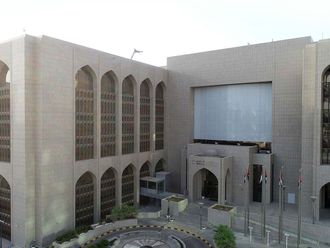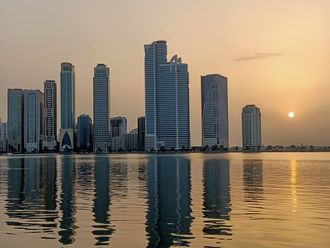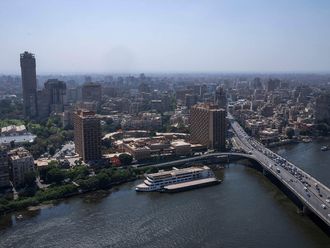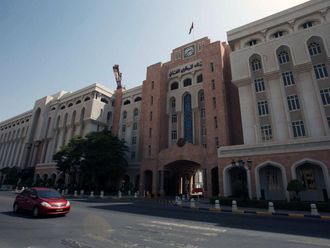It would be a daunting task for the six-nation Gulf Cooperation Council (GCC) to clinch a free trade agreement (FTA) with China. This is the case because a real deal must be rewarding for both sides even if relatively. The fact is China is famous for exporting rather than importing. In 2008, China had a trade surplus of $296 billion (Dh1.087 trillion) on the back of exporting $1,429 billion and importing $1,133 billion. In the same year, the US suffered a trade deficit of $816 billion by virtue of importing $2,014 billion.
To be sure, the balance of bilateral trade is in favour of the GCC countries but for a primary reason, namely Chinese dependence on imported oil. The bilateral trade amounted to a sizable $70 billion in 2008. The GCC enjoyed a surplus of $14 billion by virtue of exporting goods worth $42 billion to China. Hence, Chinese exports amounted to $28 billion comprising mainly consumer goods.
By one account, GCC countries meet up to 55 per cent of China's oil needs. Yet this partly reflects the fact that China is the second largest consumer of oil in the world after the US. However, China is exerting efforts to secure additional supplies from different countries including Iran and the Sudan.
The renewed call for an FTA was echoed last week in Bahrain, which hosted the first GCC-China Business Forum. The event brought business leaders and officials to explore investment opportunities on both sides.
I learned that the Chinese insist on making the first phase of the proposed deal restricted to goods, thus excluding services. This particularly fits China, a country known for enjoying a competitive advantage in exporting goods but not services.
At any rate, achieving a free trade deal with China falls in line with newfound determination to collectively sign accords with other economies. In other words, the Chinese are likely aware that the GCC wants to conclude deals with as many countries as possible. In late 2008, the GCC signed its first collective FTA with Singapore. And in mid-2009, the group signed another deal with the European Free Trade Association (EFTA). The group comprises Switzerland, Norway, Iceland and Liechtenstein.
Still, the GCC started free trade talks with Japan, South Korea and Pakistan plus Australia and New Zealand. Also, Turkey and Iran are pushing for separate trade deals with the GCC as a group. Still, the GCC has yet to conclude a deal with the European Union despite long-standing negotiations.
Speaking before the delegates, I presented a paper highlighting investment opportunities in the GCC states, as compiled by Trowers & Hamils, an international law firm. For instance, Saudi Arabia is geared to spend some $442 billion, of which $421 billion remains to be spent. Yet a good portion of the remaining amount is due to be spent in fiscal year 2010, thereby confirming determination to press ahead with its spending scheme.
Projected Saudi expenditures for 2010 amount to $144 billion, up by 14 per cent versus the originally planned figure for fiscal year 2009.
Still, the auth-orities allocated some $70 billion for development projects in 2010, up by $10 billion from the previous fiscal year. Undoubtedly, this is a considerable figure by virtue of accounting for 49 per cent of total projected expenditures. Projects envisaged include expansion of the road network and new power and water plants, construction of numerous educational and training institutes throughout the vast kingdom.
All told, a free trade agreement with China is useful provided it is mutually beneficial to both sides and not restricted to goods.
The writer is a Member of Parliament in Bahrain.











